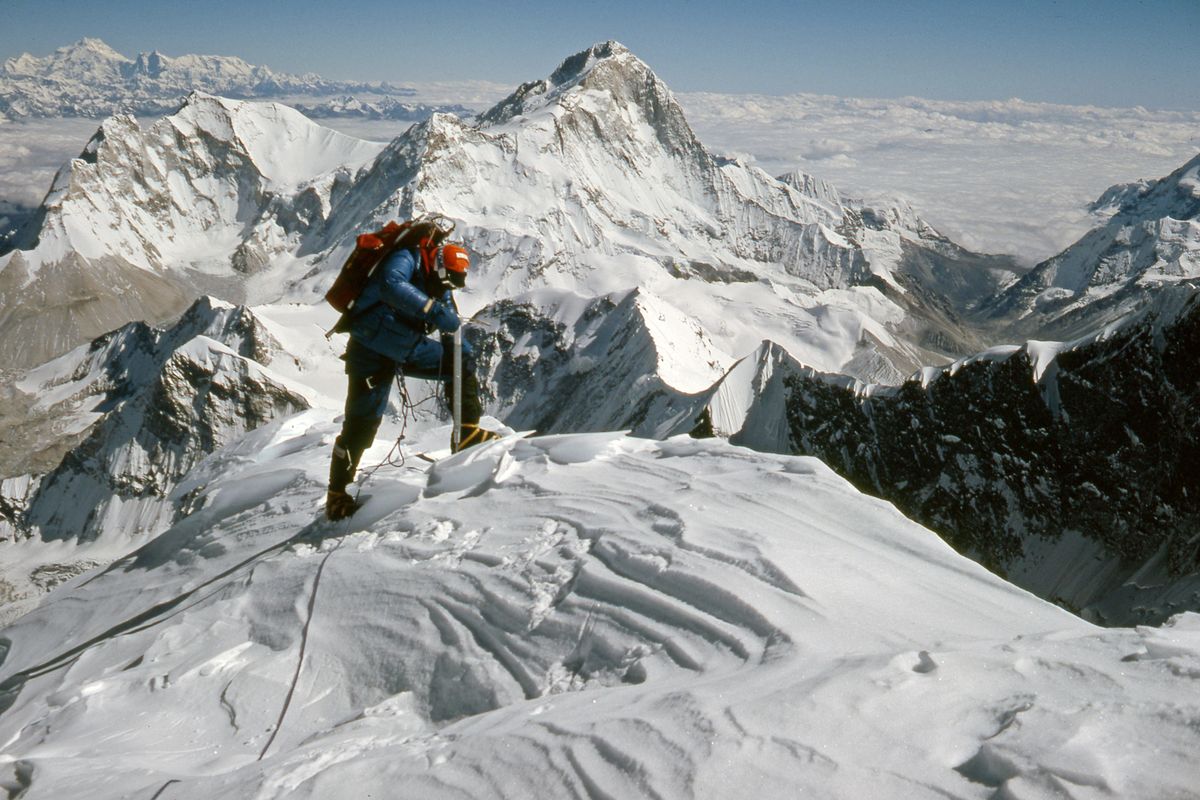Spokane mountaineer’s film links climbing, salmon, environment

When one of Spokane’s handful of world-class mountaineers decided to make a movie, you’d think it would be about climbing.
Chris Kopczynski, 66, has scanned the world from the top of the highest peaks on all seven continents.
Four decades ago, the Spokane contractor joined hometown friend John Roskelley to become the first American team to travel to Europe and scale the north face of the Eiger.
The 1980 Spokane-to-Makalu Expedition – including Kopczynski, Roskelley, Jim States and the late Kim Momb – was the first American team to reach the 27,790-foot summit of Makalu, the world’s fifth-highest peak.
They planted a flag on the Himalayan giant’s summit in a hard and satisfying way, without oxygen tanks or support climbers.
In 2002, the American Alpine Club recognized the Spokane-to-Makalu Expedition as one of the world’s 10 most significant climbs of the 20th century.
But to say Kopczynski’s movie, “Wisdom Earned,” is about climbing is like saying “A River Runs Through It” is about fishing.
The expedition-length documentary follows Kop and his goal to climb Alaska’s Mount Fairweather – one of the worst storm magnets in the world of mountaineering. His frustrations and failed attempts over four years somewhat parallel salmon and their upstream battle to survive in a modern world.
“My dad taught me lessons that have served me well, but we argued for years about the environment and how much impact people were having on the world,” he said. “Dad maintained that progress was more important than the environment up until the last few years before he died.
“Seeing wild salmon runs deteriorate from British Columbia to Puget Sound woke him up.
“Salmon fishing was my dad’s passion. Climbing was mine. This film connects the two.”
“Wisdom Earned,” a movie conceived a decade ago and produced over six years by Spokane filmmaker Lon Gibby, will debut Oct. 8 at the Bing Crosby Theater.
All proceeds from the show will be donated to the Dishman Hills Conservancy, which has worked since 1966 to protect more than 2,500 acres of wildly popular natural areas in Spokane Valley.
“It goes back to the story of the preacher who went out to save the world,” Kopczynski said. “When he realized he couldn’t do that, he focused his energy on saving his neighborhood, and finally he simply tries to save himself.”
He said he cherishes the Dishman Hills and the potential of their open spaces to connect people, especially families, with nature.
Learning to climb on Big Rock, a prominent feature that Kopczynski helped the conservancy secure for public access, inspired his mountaineering career.
The idea for the film hatched locally, too, as Kopczynski looked out his office window at Hangman Creek, where hog-size chinook salmon used to spawn before being cut off from the Spokane River by Grand Coulee Dam.
The film also taps Kopczynski’s thoughts from the memoir he’s writing, “Into Thin Hair.”
“I’ve lived a blessed life,” he said. “This film shares a few chapters of it.
“I admit there’s a lot of environmental political statement in the movie. I talk about the changes I’ve seen in my lifetime, good and bad. I think I’ve been fair.”
Kopczynski footed the bill for the film. “Brad Pitt wouldn’t take the leading role; it’s G-rated and there’s not a cuss word in the show,” he said. “Nobody was going to sponsor it.”
Viewers get only a hint of all the places Kop has explored. It tends to focus on his reflections.
“I’ve learned a lot about life and nature through my climbing,” he said, noting that he’s found his way to places few in the world will set foot. “I want to share with others what an astounding planet this is and why we should care about it.”
Alaska’s Pebble Mine proposal made headlines as “Wisdom Earned” was conceived, fortifying Kop’s resolve.
“I started reading the proposals as a contractor and they’re BS,” he said. “The idea of putting the world’s largest open-pit mine in the headwaters of the world’s most important salmon rivers isn’t just bad, it’s insane.
“It’s like the tobacco companies used to tell us that smoking is safe.”
The film features an animation of what Kopczynski calls the “greatest wave in the world” – the tsunami unleashed by the 1964 Alaska earthquake. “You can still see the impacts when you climb Fairweather,” he said. “That’s the force of nature. But the force of man can be more damaging.”
The film shows off places Kopczynski considers worth seeing, even if they’re gone.
“We included the only color film of the original Kettle Falls before they were flooded behind Grand Coulee Dam,” he said.
“I tell a lot of stories, maybe too many stories,” he said. The film runs 1 hour 48 minutes. “I’m a novice movie producer. I think with my heart first.”